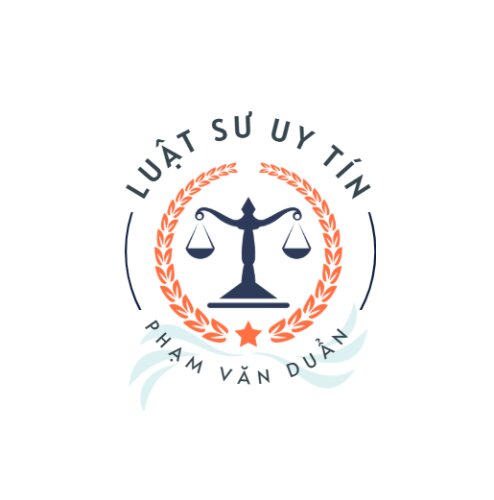Best Child Visitation Lawyers in Dong Nai
Share your needs with us, get contacted by law firms.
Free. Takes 2 min.
Free Guide to Hiring a Family Lawyer
List of the best lawyers in Dong Nai, Vietnam
About Child Visitation Law in Dong Nai, Vietnam
Child visitation is a legal right that allows a parent or, in some cases, other relatives to spend time with a child after a divorce or separation. In Dong Nai, Vietnam, these rights are designed to ensure that children maintain contact with both parents, even if the parents are no longer together. The local laws prioritize the interests and best welfare of the child, and visitation arrangements are usually determined by an agreement between the parents or, if necessary, by the local court.
Why You May Need a Lawyer
The process of securing and enforcing child visitation rights can be complex, particularly if parents disagree on the terms. You may need a lawyer if:
- You are unable to agree on a visitation schedule with the other parent
- The other parent is denying your visitation rights without a legal basis
- You want to modify an existing visitation arrangement due to changes in circumstances
- There is concern about the child's safety or well-being during visitation
- You are a grandparent or other relative seeking visitation rights
- You need help understanding your rights and obligations under Vietnamese law
- There is an international element, such as one parent living abroad
Local Laws Overview
Vietnamese law, including in Dong Nai, is governed by the Law on Marriage and Family (2014). Key points regarding child visitation include:
- The right of the child to maintain a relationship with both parents, regardless of the parents' marital status
- Visitation arrangements should be agreed upon by the parents, but the court will intervene if no agreement can be reached
- The child’s best interests are the primary factor in deciding visitation rights and schedules
- The parent who does not directly raise the child has the right and obligation to visit and care for the child
- The parent with custody must not impede the other parent's visitation unless there is a legitimate threat to the child’s safety
- If disagreements arise, the Parties may request the People's Court in Dong Nai to resolve the issue
- Failure to comply with a court-ordered visitation schedule may result in enforcement measures or penalties
Frequently Asked Questions
What is child visitation in Dong Nai, Vietnam?
Child visitation refers to the legal right of the non-custodial parent or another relative to spend time with the child after parents separate or divorce, based on mutual agreement or a court decision.
Can parents decide on their own visitation schedule?
Yes, parents are encouraged to reach an agreement on visitation times, frequency, and conditions. If they cannot agree, either parent can ask the court to decide.
What factors do courts consider when setting visitation?
Courts focus on the best interests of the child, considering their age, health, emotional needs, existing relationships with each parent, and the abilities of each parent to provide a safe and stable environment.
Can visitation rights be refused?
Visitation can only be limited or refused if it is proven that visitation would harm the child’s physical or emotional wellbeing. Any restriction must be ordered by the court.
Are grandparents or other relatives allowed visitation?
In special cases, such as when it serves the best interests of the child, courts may grant visitation rights to grandparents or other close relatives.
What happens if one parent prevents the other from seeing the child?
If a parent obstructs court-ordered visitation, the aggrieved party can file a complaint with local authorities or seek enforcement through the People's Court.
Can visitation arrangements be changed?
Yes, if there are substantial changes in circumstances, either parent can apply to the court to modify the existing visitation agreement.
Is it necessary to have a written visitation agreement?
While verbal agreements are possible, a written agreement or court order is recommended for clarity and easier enforcement if disputes arise.
What role do local authorities play in visitation disputes?
Local authorities, such as the Commune-level People’s Committee, may mediate disputes. However, unresolved or serious disputes are settled by the People's Court.
How does the court enforce child visitation orders?
If an order is violated, the court can issue warnings, fines, or other enforcement measures, and may involve social or child protection agencies to ensure compliance.
Additional Resources
If you need more information or assistance, you can reach out to the following resources in Dong Nai Province:
- Dong Nai Department of Justice - Provides guidance on family law and legal procedures
- People’s Court of Dong Nai - Handles disputes and enforces visitation orders
- Local Legal Aid Centers - Offers free or affordable legal advice to eligible individuals
- Vietnam Children’s Rights Protection Association - Supports and advocates for children’s welfare
- Commune-level People’s Committee - Offers initial mediation services for family disputes
Next Steps
If you require legal help with child visitation in Dong Nai, Vietnam, consider the following steps:
- Document your concerns or issues related to child visitation
- Attempt to resolve the matter amicably with the other party, if possible
- Contact a qualified family lawyer or visit a local legal aid center to discuss your case
- Gather relevant documents, such as your marriage certificate, divorce decision, and any prior visitation agreements
- If necessary, file a petition or complaint with the People’s Court of Dong Nai for assistance in obtaining or enforcing visitation rights
Seeking legal advice early can help ensure the best outcome for you and your child and help avoid unnecessary stress and complications during this sensitive process.
Lawzana helps you find the best lawyers and law firms in Dong Nai through a curated and pre-screened list of qualified legal professionals. Our platform offers rankings and detailed profiles of attorneys and law firms, allowing you to compare based on practice areas, including Child Visitation, experience, and client feedback.
Each profile includes a description of the firm's areas of practice, client reviews, team members and partners, year of establishment, spoken languages, office locations, contact information, social media presence, and any published articles or resources. Most firms on our platform speak English and are experienced in both local and international legal matters.
Get a quote from top-rated law firms in Dong Nai, Vietnam — quickly, securely, and without unnecessary hassle.
Disclaimer:
The information provided on this page is for general informational purposes only and does not constitute legal advice. While we strive to ensure the accuracy and relevance of the content, legal information may change over time, and interpretations of the law can vary. You should always consult with a qualified legal professional for advice specific to your situation.
We disclaim all liability for actions taken or not taken based on the content of this page. If you believe any information is incorrect or outdated, please contact us, and we will review and update it where appropriate.










